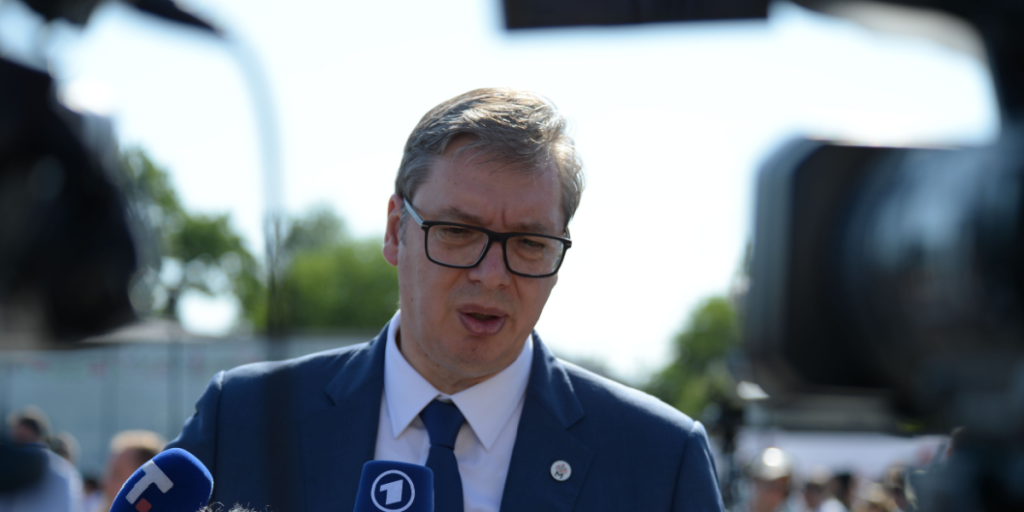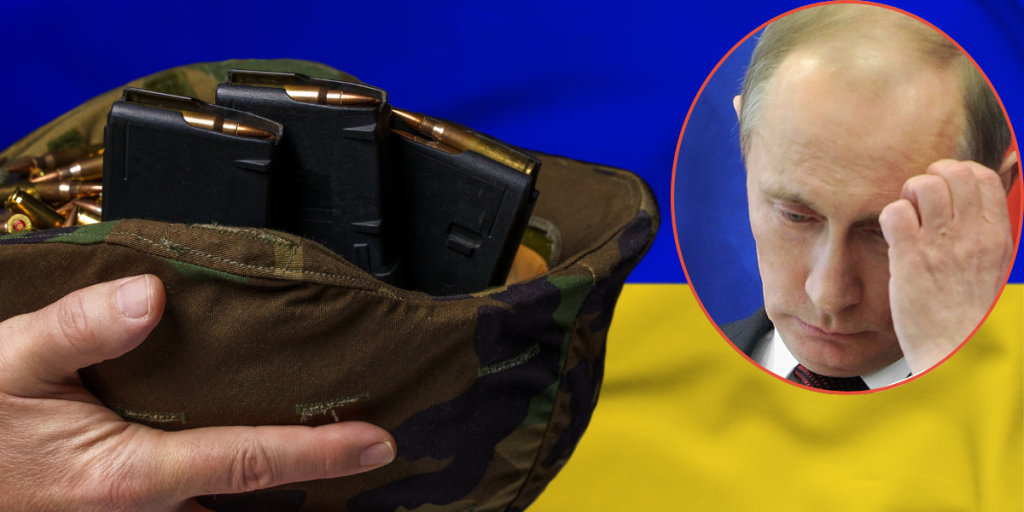The move marks a sharp departure from the Balkan State’s previously cautious stance toward Moscow amid the ongoing war.
Others are reading now
Serbia has surprised its long-time ally Russia by saying it would sell ammunition to European Union countries without restrictions, even if the weapons later end up in Ukraine, German magazine Cicero reports.
Serbia has traditionally maintained close political and economic ties with Russia, refusing to join Western sanctions against the Kremlin. The Balkan nation continues to import Russian gas under a three-year agreement signed in October to purchase 2.5 billion cubic metres annually.
Its relationship with Moscow has brought economic benefits — particularly in the technology sector, where Russian investors have set up operations following the exodus from their home country.
President Aleksandar Vučić has also cultivated a personal rapport with Vladimir Putin, meeting him in Moscow in September and attending the World War II victory celebrations earlier this year.
A shift toward Europe
Yet Vučić now appears to be signalling a pivot toward the European Union.
Also read
In the interview with Cicero, he revealed that Serbia possesses significant stockpiles of ammunition and is ready to sell them to European buyers without setting conditions.
“I don’t want to be seen as someone who is constantly supplying ammunition to warring parties, but Europe needs ammunition,” Vučić said. “So I suggested that our friends from the EU sign a sale and purchase agreement with us and take everything we have. It would be a phenomenal contribution we could make to European security.”
When asked if Serbia would object to EU states transferring those munitions to Ukraine, he replied that “buyers can do whatever they want with them.”
Contradictory stance
The Serbian leader’s latest comments contrast sharply with his earlier position.
In May, Vučić had declared he would forbid any arms deals suspected of indirectly supporting Ukraine’s military.
Also read
“I will definitely give an order and a warning that in case of suspicion of misuse by end users and sending to battlefields without our knowledge, such contracts will not be executed,” he said then.
Moscow has repeatedly accused Belgrade of enabling weapons to reach Kyiv through third-party buyers, claiming Serbia was “shooting Russia in the back.”
Despite his public denials, Vučić admitted in an interview with the Financial Times in June 2024 that roughly €800 million worth of Serbian ammunition had reached Ukraine through indirect sales.
Between Moscow and Brussels
Vučić’s latest remarks reflect Serbia’s balancing act between maintaining its alliance with Russia and pursuing closer ties with the European Union.
As the war in Ukraine drags on and the EU seeks to expand ammunition production, Belgrade’s willingness to supply munitions — even indirectly — could test its long-standing partnership with Moscow.
Also read
Serbia has surprised its long-time ally Russia by saying it would sell ammunition to European Union countries without restrictions, even if the weapons later end up in Ukraine, German magazine Cicero reports.
Serbia has traditionally maintained close political and economic ties with Russia, refusing to join Western sanctions against the Kremlin. The Balkan nation continues to import Russian gas under a three-year agreement signed in October to purchase 2.5 billion cubic metres annually.
Its relationship with Moscow has brought economic benefits — particularly in the technology sector, where Russian investors have set up operations following the exodus from their home country.
President Aleksandar Vučić has also cultivated a personal rapport with Vladimir Putin, meeting him in Moscow in September and attending the World War II victory celebrations earlier this year.

A shift toward Europe
Yet Vučić now appears to be signalling a pivot toward the European Union.
Also read
In the interview with Cicero, he revealed that Serbia possesses significant stockpiles of ammunition and is ready to sell them to European buyers without setting conditions.
“I don’t want to be seen as someone who is constantly supplying ammunition to warring parties, but Europe needs ammunition,” Vučić said. “So I suggested that our friends from the EU sign a sale and purchase agreement with us and take everything we have. It would be a phenomenal contribution we could make to European security.”
When asked if Serbia would object to EU states transferring those munitions to Ukraine, he replied that “buyers can do whatever they want with them.”
Contradictory stance
The Serbian leader’s latest comments contrast sharply with his earlier position.
In May, Vučić had declared he would forbid any arms deals suspected of indirectly supporting Ukraine’s military.
Also read
“I will definitely give an order and a warning that in case of suspicion of misuse by end users and sending to battlefields without our knowledge, such contracts will not be executed,” he said then.
Moscow has repeatedly accused Belgrade of enabling weapons to reach Kyiv through third-party buyers, claiming Serbia was “shooting Russia in the back.”
Despite his public denials, Vučić admitted in an interview with the Financial Times in June 2024 that roughly €800 million worth of Serbian ammunition had reached Ukraine through indirect sales.
Between Moscow and Brussels
Vučić’s latest remarks reflect Serbia’s balancing act between maintaining its alliance with Russia and pursuing closer ties with the European Union.
As the war in Ukraine drags on and the EU seeks to expand ammunition production, Belgrade’s willingness to supply munitions — even indirectly — could test its long-standing partnership with Moscow.


